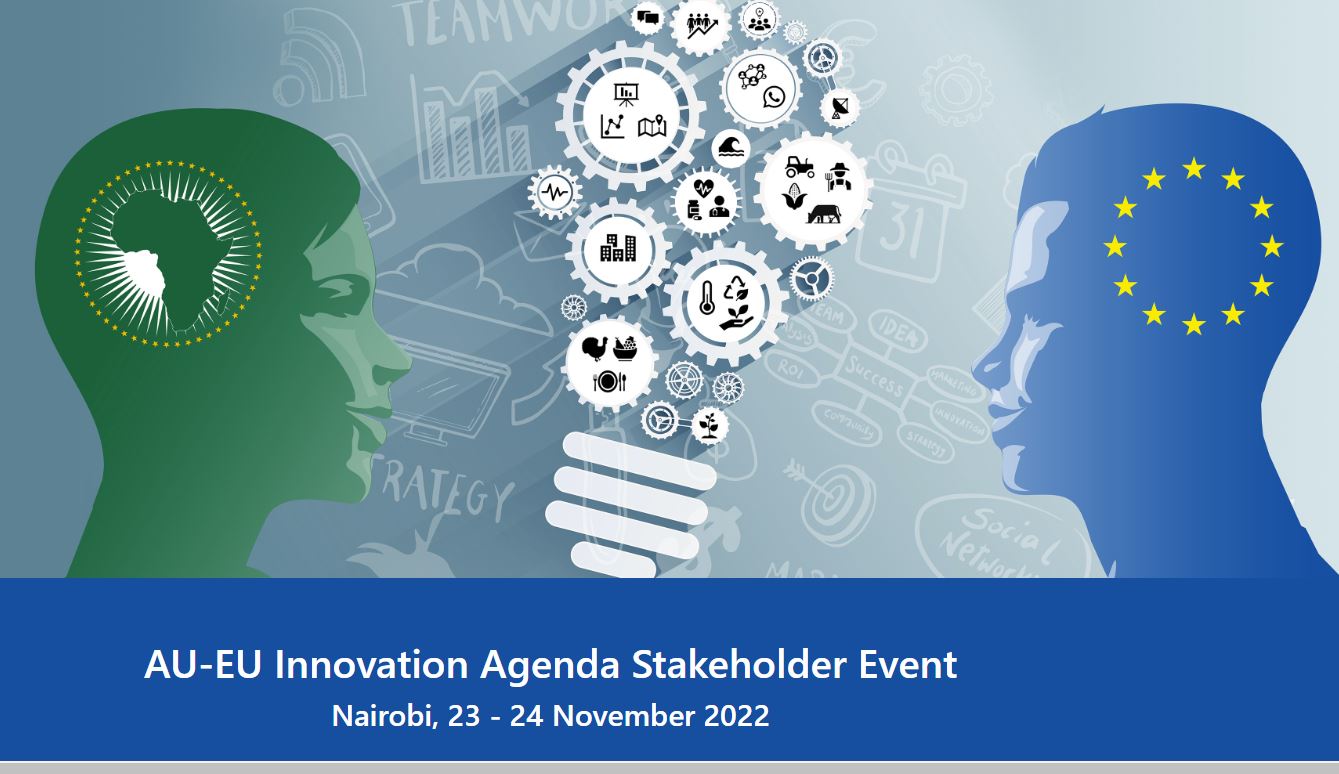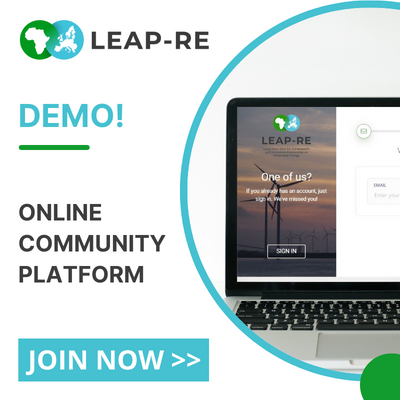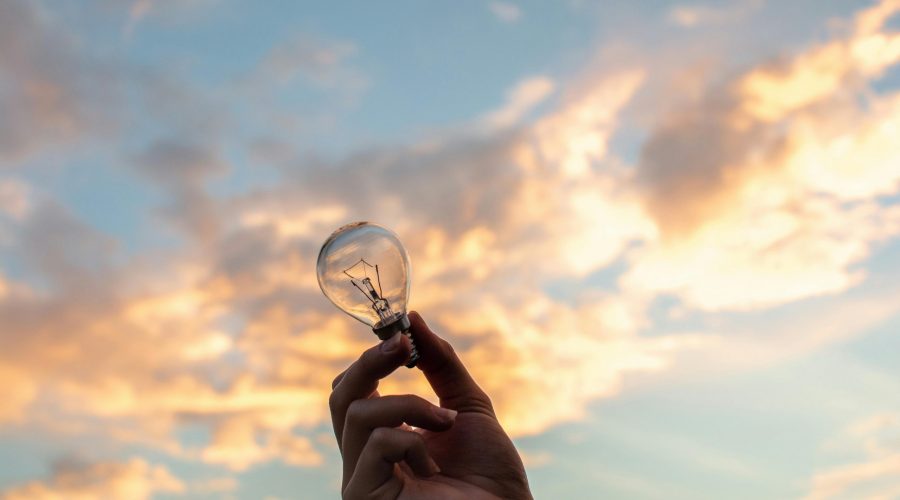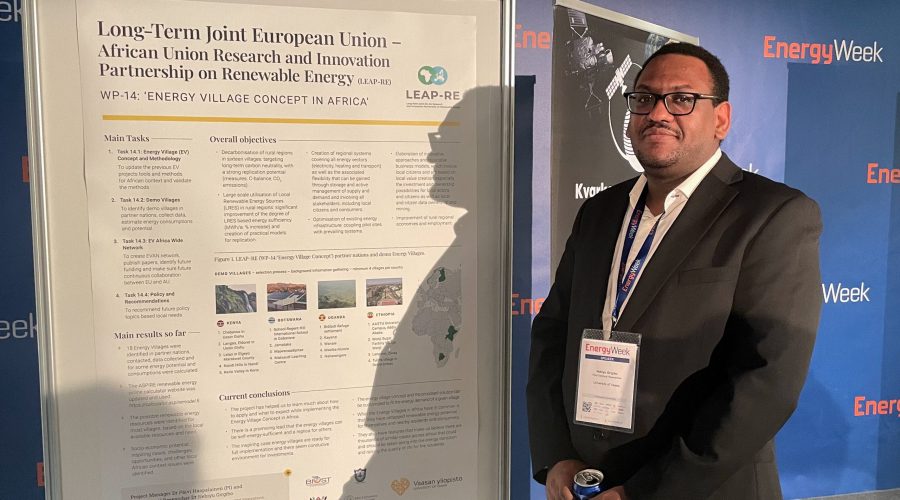If you have a keen interest in Science, Technology and Innovation, as well as social media, the hashtags #AUEU, #InnovationAgenda, #StakeholderEvent, #PositiveAgenda, #MakingItHappen, might be of particular interest to you. These feature the latest AU-EU Innovation Agenda Stakeholder Event, convened by the European Commission and the African Union Commission, in Nairobi, Kenya (and online) late November 2022. For over two days, stakeholders from both regions united once again, this time to present and further discuss the outcomes of the public consultation that solicited multi-sectoral views on the intents, priorities, and objectives of the Agenda.
About the AU-EU Innovation Agenda
The joint AU-EU Innovation Agenda is an initiative that seeks to accelerate the translation of research and innovation into tangible positive impact on the ground. In this regard, the Agenda aims to contribute to generating research-based products and services in Africa and in Europe, in the following priority areas: Public Health, Green Transition, Capacities for Science, Innovation and Technology; and Crosscutting issues. The Stakeholder event not only addressed the findings of this public consultation but also provided a space for the co-creation of an implementation plan, according to varied topics, in dedicated “Thematic Workshops”, in line with the priority areas of the Agenda. To that end, the event convened a multiplicity of actors from both Africa as well as Europe, that are key in contributing to the Agenda’s implementation.
Climate Change and Sustainable Energy: LEAP-RE as a key contributor
The topic of Climate Change and Sustainable Energy (CCSE) was covered and unpacked under priority area “Green Transition”. LEAP-RE played a prominent role at the event, with the participation of several partners. Professor Emanuela Colombo from Politecnico di Milano led the discussions related to the CCSE, where participants had a chance to discuss climate change and sustainable energy, as it relates to the Innovation Agenda. Professor Mokhtar Sellami, Professor Izael Da Silva, Ms Anne Wacera Wambugu, Ms Susan Onyango as well as Ms Sandra Banda also contributed greatly to profiling LEAP-RE projects, as well as the LEAP-RE app. Interventions were made on the latest projects funded in 2022 through the LEAP-RE Call for Research and Innovation projects, and presentations were made on the PURAMS, SETADISMA, and Geothermal Village projects that were launched in 2021 as part of the LEAP-RE project portfolio.
What is next?
The Stakeholder Event represented the culmination of a long dialogue process started in February, of “not overlooking the voices of the people for whom the solutions are intended” in the framework of the AU-EU Innovation Agenda. LEAP-RE is well positioned to contribute to the advancement of the imperatives of the Agenda, more so those that speak to clean and sustainable energy, as a research and innovation initiative between Africa as well as Europe in renewable energy. The Agenda covers the development of innovative renewable energy devices, well able to be deployed in communities, and indeed LEAP-RE, through its portfolio of projects, provides innovations and solutions that are able to be domesticated in communities, as well as environments that would catalyze commercialization all in service to society.
Final touches will be added to the final version of the Agenda, which is expected to be ready in the beginning of 2023 and presented for adoption during the AU-EU Ministerial Meeting on Science, Technology and Innovation, to take place later in the same year.
If you want to know the more about LEAP-RE, the projects, and how we contribute to the Innovation Agenda, follow us on twitter @leapRE_EU.




